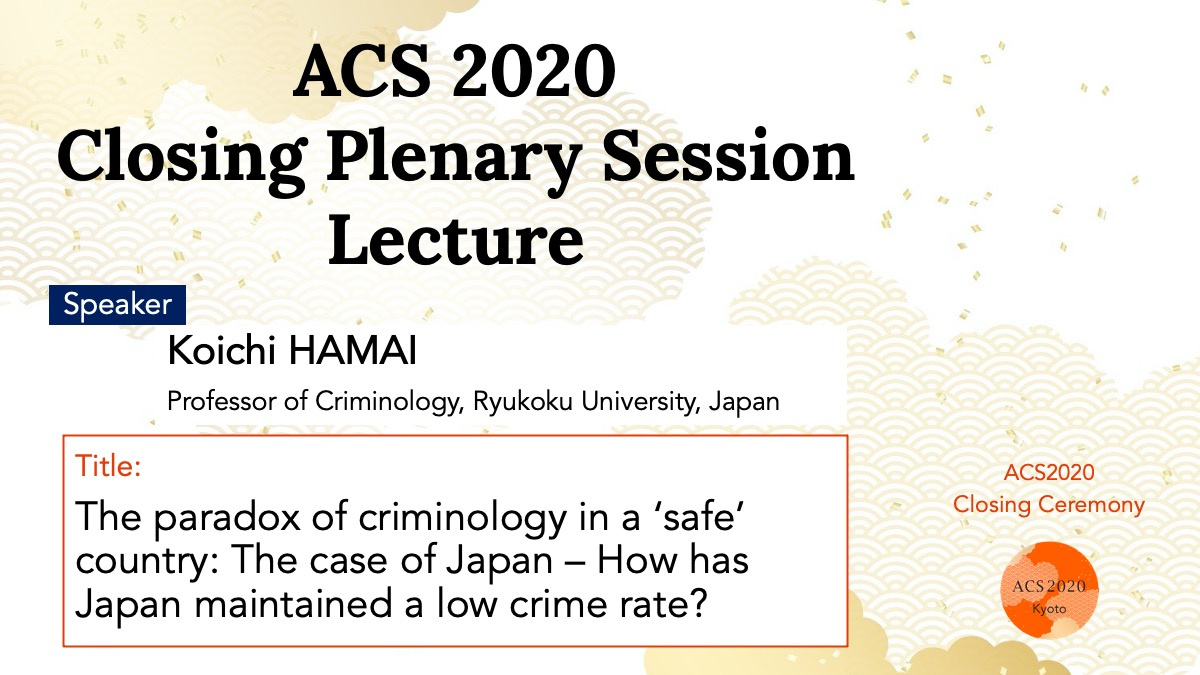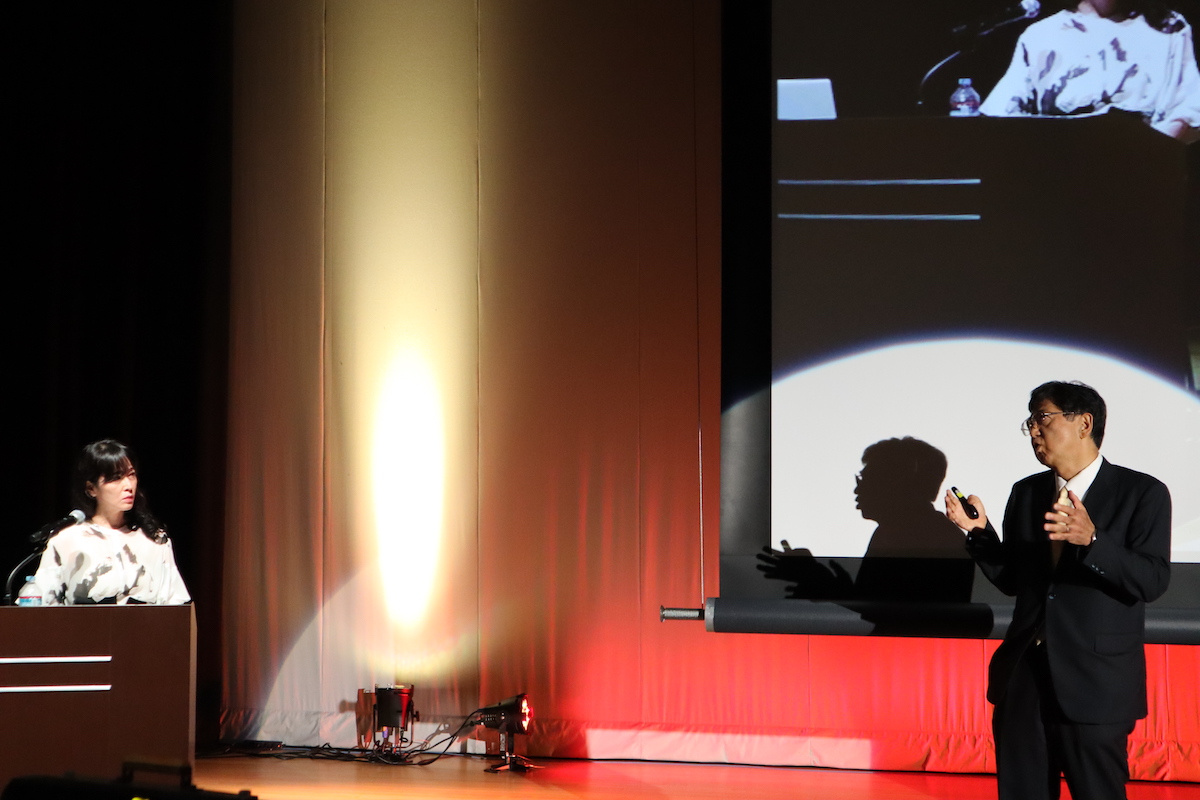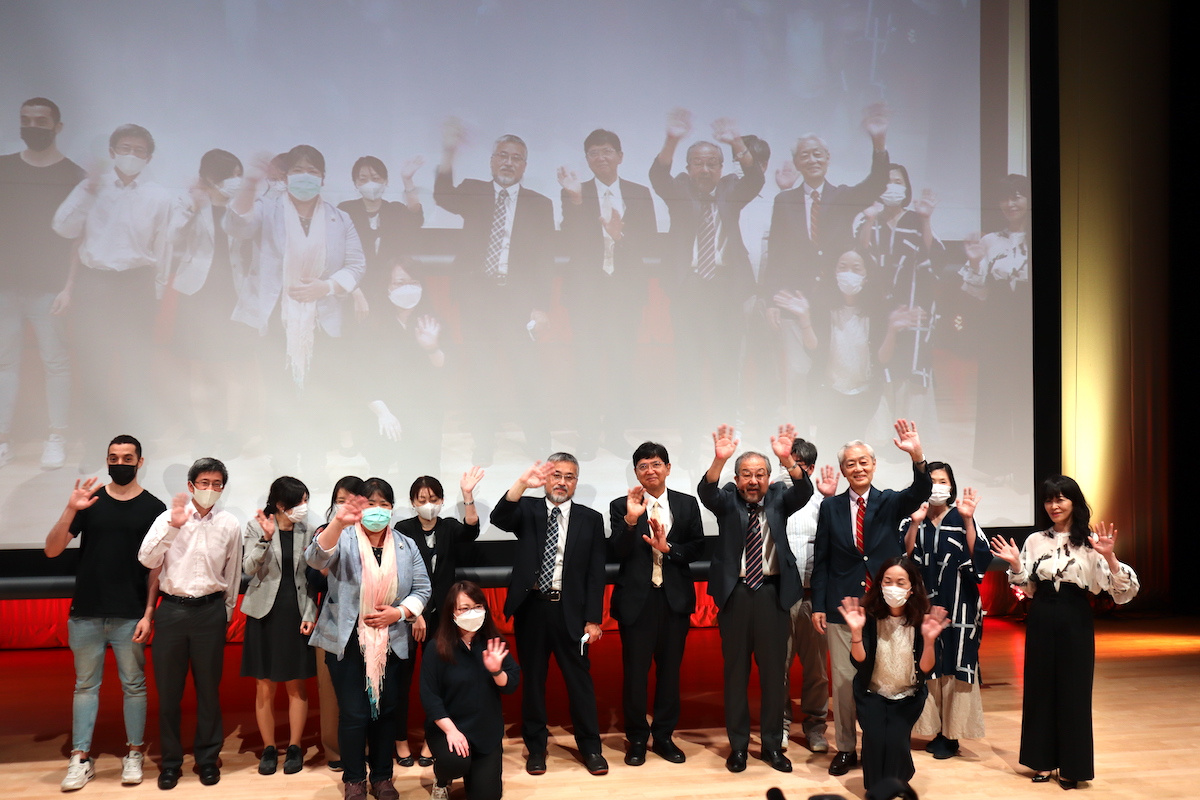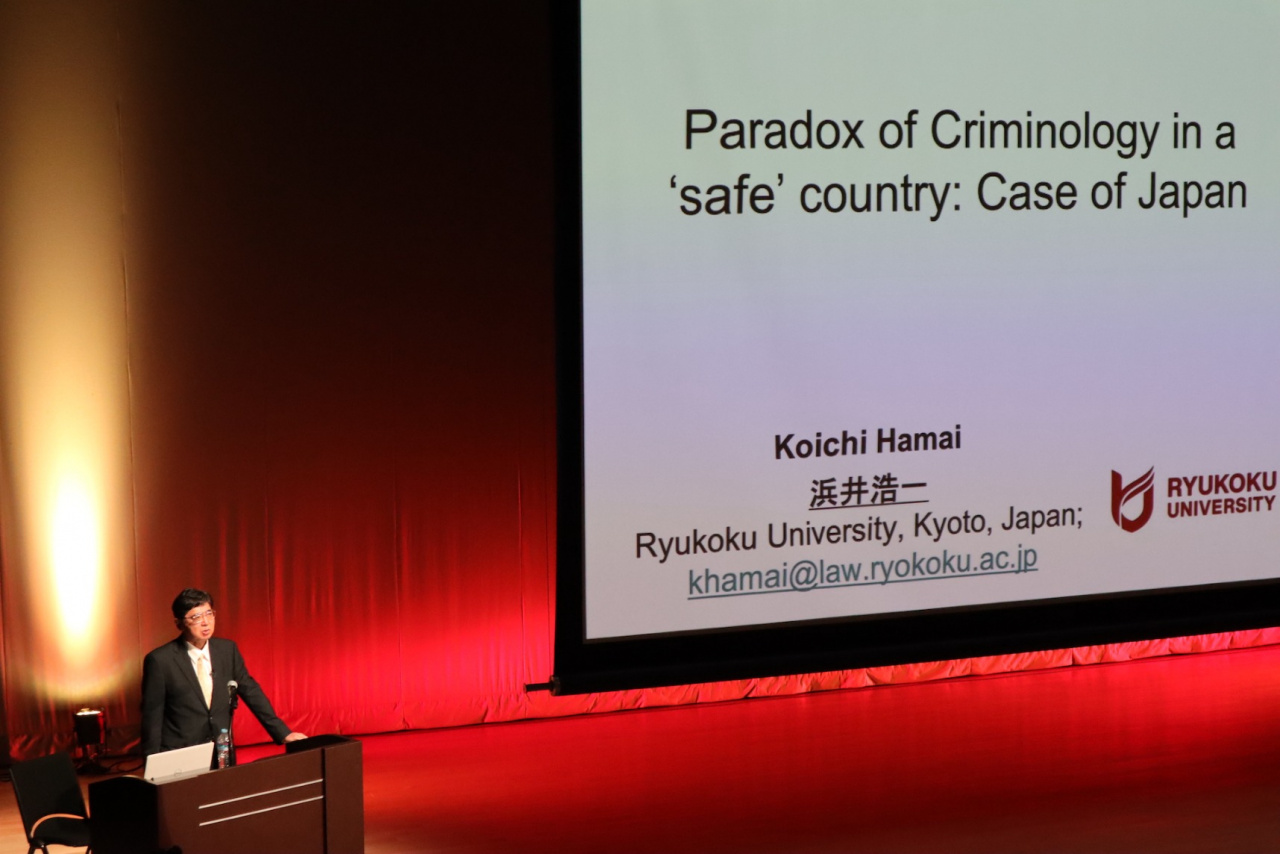2021.08.06
[Report of the ACS2020] Closing Plenary Session_Prof. Koichi HAMAI
The paradox of criminology in a ‘safe’ country: The case of Japan – How has Japan maintained a low crime rate?
The Asian Criminological Society 12th Annual Conference (ACS2020), hosted by Ryukoku University, was held online for four days from June 18 to 21, 2021. The purpose of the conference, the second of its kind to be held in Japan after the 2014 Osaka conference, was to promote the growth of criminology in Asia and Oceania, and to promote academic exchange with advanced regions of criminology such as the United States and Europe.
>> ACS2020 Program https://acs2020.org/program.html
The overall theme of the conference is "Crime and Punishment under Asian Cultures: Tradition and Innovation in Criminology". The aim was to promote understanding of the social systems and culture and measures against crime and delinquency in Japan, which is said to be "the country with the least crime in the world".
The following is a summary of the Closing Plenary Session, which was held live streaming at the conference.
- Plenary Speaker: Koichi HAMAI (Professor of Criminology, Ryukoku University, Japan)
- Chair: Akiko KOGAWARA (Professor, Faculty of Law, Ryukoku University, Japan)
- Date: 11:00-12:00, 21 June, 2021
- Keywords: Penal Populism, Elderly crime, Juvenile Delinquency, Ritualism, Pandemic, Public Health

Japan enjoyed its post-war reputation as one of the most crime-free countries. The number of homicides reported in Japan has constantly decreased since 1955, to an all-time low of 895 in 2016 (950 in 2019). According to the 2019 UN Global Study on Homicide, the Japanese homicide rate in 2017 was around 0.2 per 100,000 population – which was lower than in nearly any other advanced democracy. Japan has effectively controlled illegal drug markets. The lifetime experience rate of illegal drugs is also very low in Japan, with 1.2% reporting cannabis use.
Several explanations have been postulated for why Japan has maintained a very low crime rate. These include, for example, that Japan is a relatively homogeneous society that has few immigrants, or that it has a good criminal justice system. At the 14th UN Congress on Crime Prevention and Criminal Justice, one of the Japanese delegates claimed that the Japanese people “have developed trust and confidence that their laws are formulated through a legitimate process and are applied in a fair manner, thereby fostering a culture of lawfulness rooted in society”. Is this claim valid and the reason for the low crime rate? A social psychologist, Toshio Yamagishi, claims that social order in Japan is maintained by mutual monitoring and threat of exclusion, rather than enforcement of universal rules of conduct (laws).
John Braithwaite once claimed that Japan’s success in maintaining a low crime rate could be explained by the commitment of the Japanese criminal justice system, and Japanese society in general, to notions of reintegration and reparation. But, has Japanese society really been re-integrative, and has the criminal justice been lenient toward offenders? While the number of crimes has been decreasing, the prison population contains many elderly and handicapped people who have been detained for minor offenses. In 2019, more than 13% of new inmates were above 65 years of age and have no pension to fall back on. According to a recent study by the Ministry of Justice, it was found that 14% of inmates over 60 are suffering from forms of dementia such as Alzheimer’s disease. Moreover, some elderly inmates have tried to return to prison by committing another crime just because they knew that there was no place for them outside the wall. Then, in the last two decades, more than a thousand of them have died in prisons. In Japanese society, people are very intolerant of the behaviors which disturb social and moral order or cause trouble. Therefore, people are afraid of disturbing conformity.
Considering these aspects, I will explore the social mechanisms of the low crime rate in Japan and the future of criminology in the shrinking Japanese criminal justice market.
Presentation Summary:
[Decrease in Crime Recognition and Increase in Crimes by the Elderly]
Japan is said to be one of the safest countries among the developed countries. The number of homicide arrests per 100,000 population is much lower than in other countries, and is decreasing every year. The number of deaths due to violent crime is also decreasing. On the other hand, crimes committed by the elderly are on the rise. Even though the total number of inmates is decreasing, the number of elderly people being held in penal institutions for minor crimes such as shoplifting is increasing. It may be said that inmates in Japan are becoming welfare facilities. Many elderly inmates suffer from dementia, and the number of elderlies who die in prison is increasing. There are also inmates who reoffend and re-enter prison because they have no place in society. Prisons have become a safety net for the elderly.
[So-called "Peer Pressure"]
Japanese society is punitive towards those who disrupt order and cause trouble. Therefore, people are extremely afraid of causing trouble to others. In Japan, when someone helps you or takes care of you, many people say "I am sorry" instead of "Thank You". This is the same reason why people are hesitant to apply for welfare. It may be said that social order is maintained by mutual surveillance within a group, or fear of exclusion from a group. In a society of mutual surveillance, the fear of exclusion and isolation can discourage crime. However, once a person has become isolated from society, or has crossed the line into crime, he or she will be viewed harshly. As the number of isolated elderly people is increasing, the strict scrutiny of each other is leading them to commit crimes. For such elderly people, prison may be the only place where they do not have to bother others and do not have to worry about being subjected to new stigmas.
[Juvenile Delinquency in Japan]
Recently, the economic situation for juveniles in Japan has been worsening. The number of juveniles living in poverty has been increasing. However, the number of juvenile delinquents is decreasing, a paradoxical phenomenon. This phenomenon can be explained by Robert Merton's theory of anomie. In societies characterized by "innovation" such as the U.S., the predominant value choice and behavioral pattern is that it is okay to have some problems with how the goal is achieved. Japan, on the other hand, is a society where "ritualism" prevails, where alignment and synchronization are more important than devaluing goals. Furthermore, there is even a tendency among young people these days toward "retreatism," which is the abandonment of achieving goals and conforming to rules in the first place. So we are beginning to see juveniles who are not even motivated to delinquency. An international survey on youth attitudes conducted by the Cabinet Office also shows that Japanese youths do not have high hopes for their future. Without big dreams, there will be no tension due to dissatisfaction, which can lead to crime.
[Pandemics and Criminology]
This year's Asian Criminological Society 12th Annual Conference was held in the midst of a pandemic, the global outbreak of COVID-19. As a member of the academic division, I asked the invited speakers to mention the pandemic.
Prof. David Garland (Sociology of Law, New York University, U.S.) argued that criminology should learn from the role that public health (experts) have played in this pandemic. He also argued that it is important to take a public criminology perspective on how to communicate expert knowledge to citizens and policymakers.
In a pandemic, a person is infected with a virus, which is then transmitted by the infected person to other people. An important mission for public health is to communicate real threats to people scientifically. In other words, the key message is to accurately convey that the target to be fought (evil) is the virus, not the person carrying it.
The same goes for criminology. Penal Populism argues that it is the individual criminals who are the real threats to us so that isolating (incapacitating), intimidating, and monitoring them will be the answers to solve the problem.
The mission of criminology, like that of public health, is to inform the public, based on scientific knowledge, about the mechanisms that make people commit a crime and the mechanisms that help people recover from crime. As with infectious diseases, any person can be infected with the virus of crime. And anyone can recover from that infection. It is important to convey this fact properly to the public.
Prof. Shadd Maruna (School of Social Sciences, Education and Social Work, Queen's University, UK) showed how to recover from the infection of crime. Prof. Lorraine Mazerolle (School of Criminology, University of Queensland, Australia) pointed out that reliable criminal justice is the key to solving the problem. Like Prof. Garland, Prof. John Pratt (Institute of Criminology, Victoria University of Wellington, New Zealand) pointed out that criminology needs to learn from public health successes and strive to communicate the right knowledge to the public, which will reduce punitive populism and pave the way for the future of criminology. He pointed out that criminology needs to learn from public health success stories and try to communicate the right knowledge to the public.
Japanese society is basically very punitive towards people who cross a certain line and cause trouble or cause trouble to others. And it is a society where mutual surveillance functions to prevent people from crossing certain lines. Even in the midst of a pandemic, the Japanese government has not taken strong measures such as lockdowns like European countries have. And trust in the government is not high. However, we have been able to maintain a relatively low infection rate, probably because of the functioning of these characteristics of our society.
[Paradigm of Criminal Policy]
Let me tell you about the case in Japan. At the request of a local government, I took on the role of an advisor for rehabilitation. I advised them, based on empirical data, that it is important to support reintegration into the community to prevent recidivism. I explained, based on evidence, that offenders are not enemies who should be excluded from society, but are born into society and return to it, just like us. Criminal policy in Japan should shift from a punitive paradigm to a reintegration paradigm. Such efforts are beginning to be made at the municipal level, and the "Nara City Regulation on Rehabilitation Support," in which I was involved, is one example.
[Conclusion Message]
In Buddhism, there is the concept of 縁(En), which is the everything that supports us. Without 縁, we would not be able to live on our own. If criminology can convince people that those who have committed crimes are also human beings just like us, and that they can be recovered by regaining their 縁, Japan may be able to change from a society of mutual surveillance to a society of mutual trust. This may be the path for which criminology in Japan should aim.
After the plenary lecture that summarized the conference, there was a discussion on why elderly people commit crimes in Japan and why they tend to be isolated. The answer lies in the isolation of the elderly. Elderly people who live alone cannot live without the help of those around them. However, many elderly people stay indoors and isolate themselves because they feel that they should not bother others for help.


